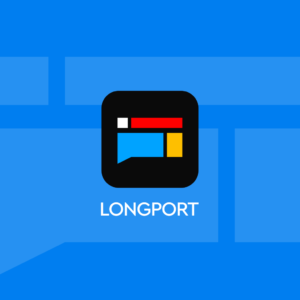Microsoft Launches Usage-Based Copilot Subscription

Microsoft Introduces Pay-As-You-Go Copilot Plan
Overview of the Announcement
Microsoft has announced its plans to offer a pay-as-you-go Copilot plan designed specifically for organizations eager to experiment with AI agents. This initiative was revealed in a recent announcement aimed at providing flexibility for businesses interested in integrating AI technologies into their operations.
What is the Copilot Plan?
The new offering, called Microsoft 365 Copilot Chat, is powered by OpenAI’s advanced GPT-4. It allows users to automate repetitive tasks and build autonomous agents using Copilot Studio. These agents can utilize third-party data, web data, or shared data to carry out tasks. This capability supports organizations in simplifying workflows and improving efficiency.
Features of Microsoft 365 Copilot Chat:
- Automation: Users can automate various routine operations.
- Custom Agent Creation: Organizations can create agents tailored to their specific needs.
- Data Integration: The platform allows leveraging both internal and external data sources.
- Streamlined Access: The pay-as-you-go model aims to ease the transition for users who may be hesitant about adopting AI.
Insights on Corporate AI Spending
While Microsoft’s new offering aims to facilitate AI adoption, there has been increasing concern among businesses about managing technology costs. Analysts have noted a tendency for software expenses to rise, particularly due to the addition of advanced features like AI. A recent survey indicated that nearly 80% of U.S.-based companies reported escalating software costs, with many attributing these increases to the integration of AI tools.
Challenges in AI Adoption:
- Cost Management: Companies are seeking effective oversight to control AI-related expenditures.
- Integration Issues: A survey from Gartner highlighted that almost 75% of IT leaders find it challenging for users to incorporate Copilot into their daily workflows.
- Skepticism: Over one-third of participants in the survey acknowledged the potential advantages of Copilot, yet expressed doubts about its effectiveness in meeting promises.
Current Trends in AI Investment
Despite concerns over integration and costs, many corporate leaders are planning significant investments in AI. A KPMG survey revealed that a majority of executives intend to allocate between $50 million and $250 million to generative AI over the next year. More than 80% of organizations are either exploring or piloting AI agents, suggesting a strong interest in leveraging artificial intelligence for operational efficiency.
Recent Developments at Microsoft
At the Ignite 2024 conference, Microsoft expanded its portfolio of AI agents, enhancing tools for easier development along with stronger security measures. Toyota Motor Corporation has been an early adopter of this technology, implementing nine AI agents aimed at improving knowledge sharing within the company.
The Road Ahead for Businesses
While there is considerable enthusiasm for AI technologies, many businesses recognize that they need to address existing technological shortcomings before fully integrating these tools. A recent survey from Tray.ai revealed that 90% of organizations are aware of the necessity for upgrades to their tech stack.
Key Takeaways for CIOs:
- Patience Required: Companies should be prepared for a gradual adoption process as they enhance their infrastructures.
- Vendor Collaboration: Tech vendors are expected to engage with businesses to ease the transition and promote more robust adoption of AI technologies.
- Future Outlook: Companies are looking forward to witnessing how AI can evolve and better fit into their operational frameworks by 2025.
As organizations navigate this landscape, maintaining an eye on both financial and technical readiness will be essential for successful AI integration.






